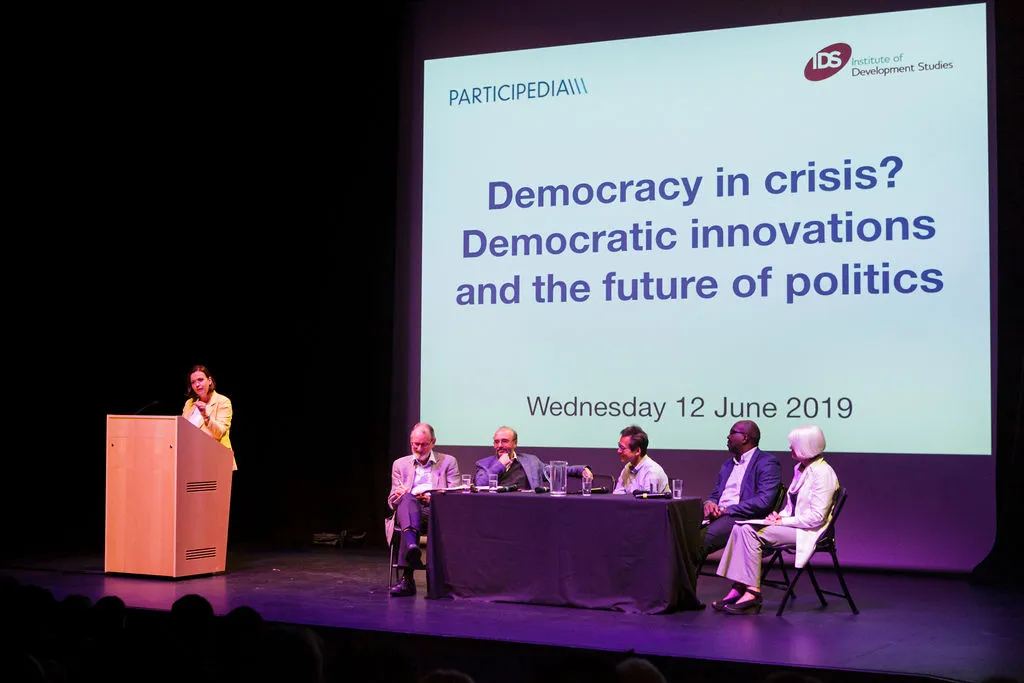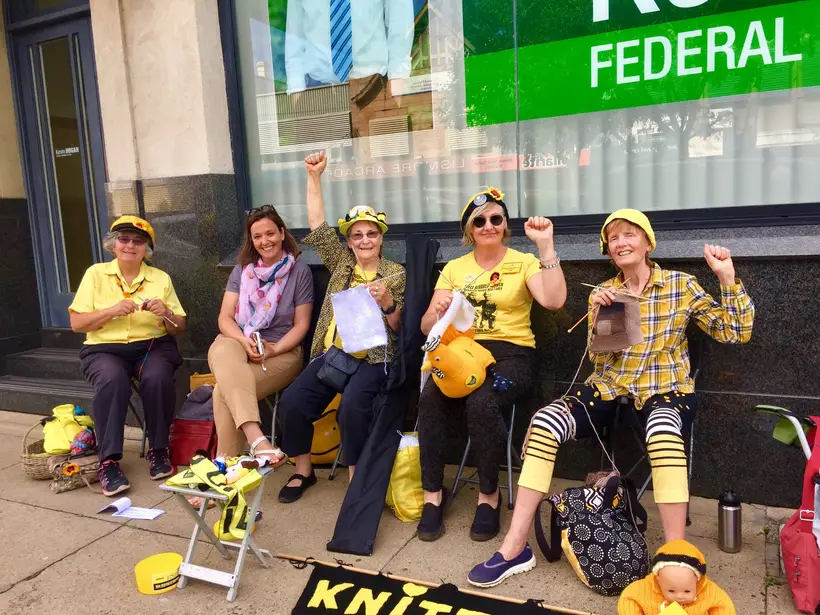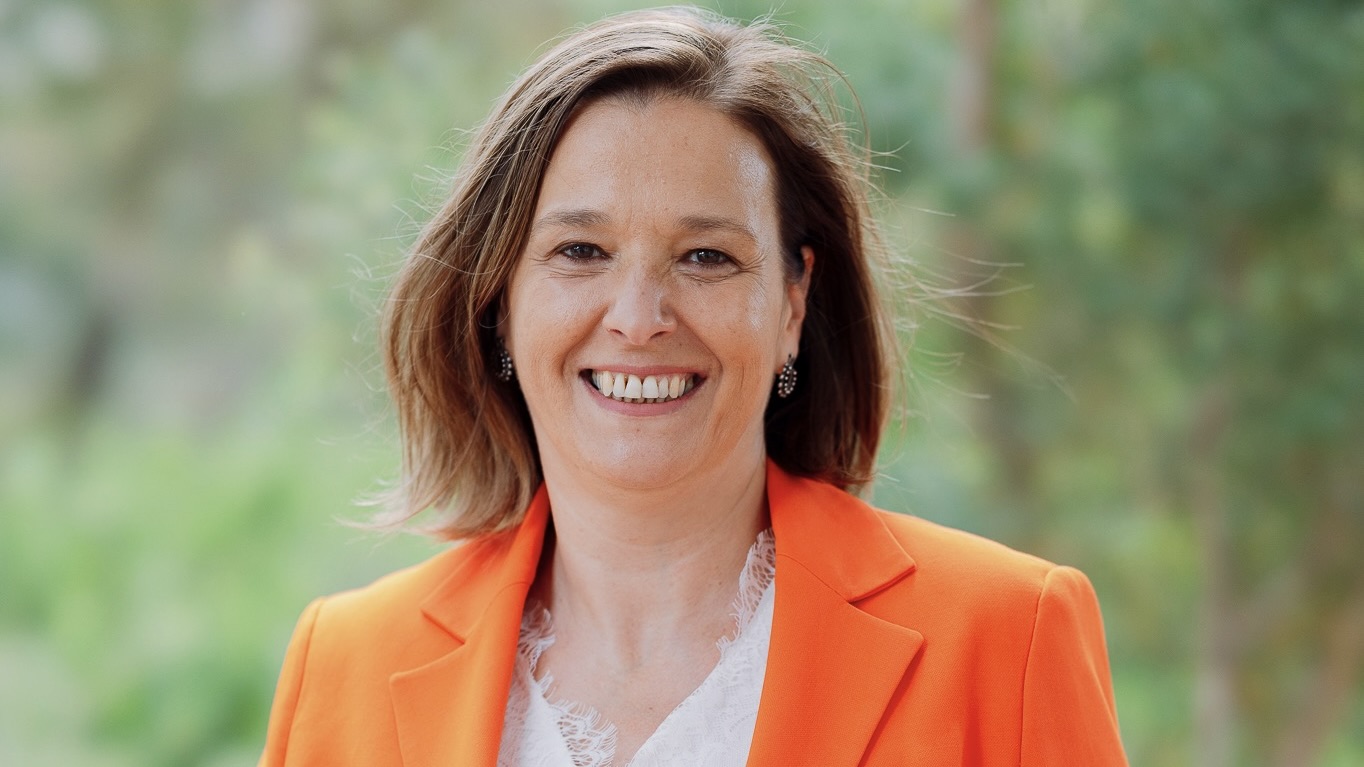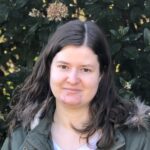Over summer, BroadAgenda is featuring a short series of profiles on amazing women and LGBTIQ + folks. You’re about to meet Professor Selen Ayirtman Ercan, Director of the Centre for Deliberative Democracy and Global Governance at the University of Canberra. She’s also the Research Lead of Centre’s Building Democratic Resilience cluster.
If you were sitting next to someone at a dinner party, how would you explain your work and research in a nutshell?
I guess it depends on who the person I am sitting next to is and where the dinner party is at. I would say that I am conducting research on democracy —what it is, where it takes place, and how it can be improved. When I say democracy to people the first thing that comes to their mind is elections of course and things like voting, and parliament house etc. (although this also depends on who is sitting next to me. I have been able to sit next to many fascinating people at dinner parties, especially here in Canberra). In a nutshell, my research goes beyond the conventional spaces and practices of democracy.
I am particularly intrigued by the concept of deliberative democracy. What is it? It is often defined as a ‘talk-centric’ as opposed to a ‘vote-centric’ approach to democracy.
In practice, this means creating spaces where people come together to discuss their disagreements, listen to each other and find common ground.
This may sound very simple and like common sense, right (unless you are an advocate of an authoritarian rule)? However, our democracies are far from realizing this supposedly straightforward idea. Sometimes, adversarial politics hinders us from finding common ground; at other times, power dynamics between different groups and individuals or an unwillingness to address historical injustices steer us away from practicing this simple democratic idea.
My work seeks to develop the conditions under which democracies can become more inclusive, more deliberative as well as more resilient.

Selen A. Ercan, speaking at “Democracy in crisis? Democratic innovations and future of politics’” panel hosted at the University of Sussex, United Kingdom, 2019. Picture: Supplied
What are you currently working on that’s making you excited or that has legs?
I am currently involved in several projects, one of which explores how democracies can become more resilient in the aftermath of extremist attacks that were aimed at instilling fear and fostering polarisation. This is a Discovery project funded by the Australian Research Council. It is inspired by Jacinda Ardern’s remarkable response to the Christchurch mass shootings.
Ardern was an extraordinary political leader. For me, what set her apart from other political leaders is that she was decisive yet compassionate at the same time—a rare combination.
Right after this attack, Ardern managed to formulate an authentic, victim-centric and compassionate response to this tragic attack. She refused to name the terrorist and took sides with the families of the victims. Our project compares this response to the responses to other similar attacks in different countries and draw lessons on democratic resilience. Australia is also one of our case studies, with a specific focus on its response to the 2002 Bali Bombings.
Another inspiring resource for my project on democratic resilience was Leigh Sales’ amazing book, Any Ordinary Day. From the moment I delved into this book, I found myself captivated and unable to put it down. I strongly recommend this book to everyone. Now, you might be wondering about the connection between Leigh Sales, an outstanding journalist, and my focus on extremist attacks and democratic resilience. There is a profound link between what Sales does in this book and what I focus on in my democratic resilience project.
In her book, Sales asks a fundamental question: When the worst happens, what comes next’? Each chapter unveils different stories of ordinary individuals navigating and overcoming life-altering events, discovering hope, and building strength and resilience after their darkest days. My project asks similar kind of questions but applies them to democracies rather than individuals. I am interested in understanding how democracies can recover from major shocks, how they become more resilient and what kind of institutions, practices and leadership is needed to nurture democratic resilience.
Let’s wind back the clock a bit. Why did you go into this field? What was compelling about it?
I am originally from Turkey. I grew up and lived in Turkey until I finished my undergraduate studies in Political Science. Since then, I have been living overseas, first in Germany for about 8 years, and then in Australia for the past 18 years. The experience of living in diverse countries, navigating various languages, and immersing myself in distinct cultural contexts has profoundly shaped both my personality and intellectual pursuits.
Being a migrant naturally sparks curiosity about the essence of a truly inclusive society and the conditions necessary for societies to embrace and accommodate differences. When you move from one country to another, you learn to question your taken-for-granted assumptions.
What feels normal or unquestionable in one country maybe approached differently in another country. When I first moved from Germany to Australia, for example, I was amazed by the motto of one Sydney council, which read ‘one community, many cultures’.
In Germany, community is something that is inherently homogenous. You could have many separate communities, but each community has one culture/ethnicity mainly. I was also amazed by the hybrid use of identities here, such as ‘Australian Muslims’. It is things like these we take for granted in Australia, but which are hard to imagine in other contexts. This does not mean that everything is perfect in Australia, but observations like these have strengthened my interest in the questions of inclusion and democracy.
What impact do you hope your work has?
I hope that my work has both scholarly and practical impact. I am trying to bring deliberative thinking in contexts that are deemed unsuitable for this approach, for example for resolving deep disagreements, or addressing the threat of violent extremism. I do hope that this is useful in the field and encourages fresh thinking. I also hope that my work has a practical impact.
One other project I am leading at the moment is developing a ‘Deliberative Democracy Toolkit for Public Servants’. Together with a brilliant group of researchers at the University of Canberra, I am working on translating our scholarly knowledge on deliberative practices into an actionable resource book for public servants in Australia. This is exciting. I hope that my work inspires people who are looking for innovative ways of doing things.

Selen A. Ercan, Fieldwork in Lismore, with the members of the Knitting Nannas against Gas, 2018. Picture: Supplied
Do you view yourself as feminist researcher? Why? Why not? What does the word mean to you in the context of your own values and also your work?
Of course I view myself as a feminist researcher. ‘Feminism is for everybody’ as bell hooks famously put it. In terms of my work, feminism means being attuned to gender and gender asymmetries and exclusions, trying to advance the empowerment of women and other marginalized groups as much as I can. Research informed by feminism cannot just be a pure scholarly exercise. It should have a political purpose and seek to identify and address inequalities and marginalisation.
Apart from these, feminism is also key for me for the kind of research methods I use in my work. I mainly use qualitative research methods and work with text and talk as my data.Feminist researchers have played a crucial role in the development of qualitative research methods. They have criticised and reconfigured mainstream scientific and positivist methods, requiring researchers to be detached from what they study in the name of producing ‘objective’ knowledge.
Feminists have emphasised the need for qualitative methods to prioritise women’s voices and “lived experiences” in the process of knowledge production. I have written about this recently– about the contribution of feminism to the qualitative research in political science, together with Prof Ariadne Vromen.
What have you discovered in your work that has most surprised or enchanted you? This is a chance to give us some stories!
There are many things that surprise and inspire me in my work. I enjoy conducting fieldwork and bridging abstract ideas with on-the-ground practices, constantly asking what we can learn from these experiences. The creativity and agency exhibited by ordinary citizens in unlikely places or under challenging conditions continue to fascinate me. Numerous examples come to mind, such as the 2014 Gezi Park protests in Istanbul, where we witnessed some of the most intelligent and creative forms of political participation and resistance.
But let me give an example from Australia. A couple of years ago, I conducted research on the coal seam gas controversy in New South Wales. During this project, I encountered the social protest group known as the Knitting Nannas Against Gas (KNAG) and had the privilege of interviewing various members in different towns across New South Wales, including Lismore, where the group originated. KNAG members regularly gather in public places, often in front of their representatives’ offices, where they sit and knit yellow scarves, beanies, toys, and puppets as a form of protest against mining in their communities. These meetings involve much more than sharing wool and knitting patterns.
By coming together to knit and persistently ‘being present,’ they aim to send a political message to their local politicians and broader public that they are vigilant against undesirable mining activities. It was fascinating to observe how these women subvert their traditional soft and sweet ‘nanna roles’ to not only make a political statement but also to mend broken relations in communities polarized by the coal seam gas controversy. KNAG is one of the case studies in my recent book, Mending Democracy: Democratic Repair in Disconnected Times (with Hendriks and Boswell). I have also published other work drawing on this inspiring case, exploring the role of knitting and non-verbal expression in democracy.
Is there anything else you want to say?
Politics does not have to be boring and adversarial. It can be fun, creative and engaging. Through my research, I’ve discovered that everyday individuals possess remarkable capabilities to envision and actualize transformative changes in our democratic systems. Let’s dispel the notion that politics is dull; instead, let’s embrace its potential for excitement, innovation, and meaningful engagement, so that we can redefine and invigorate the very essence of democracy.






